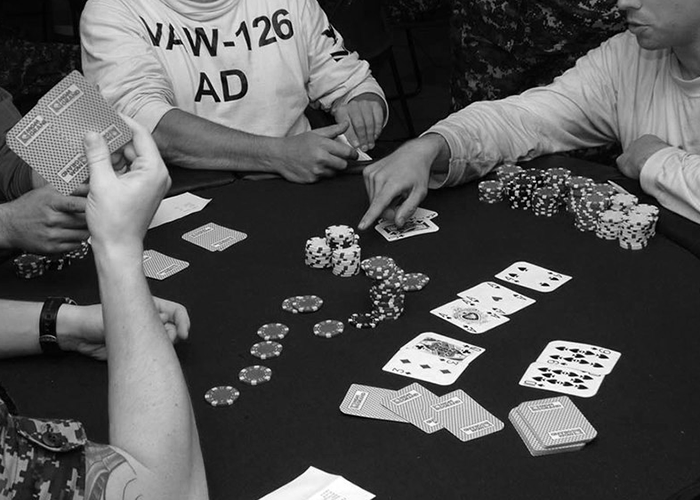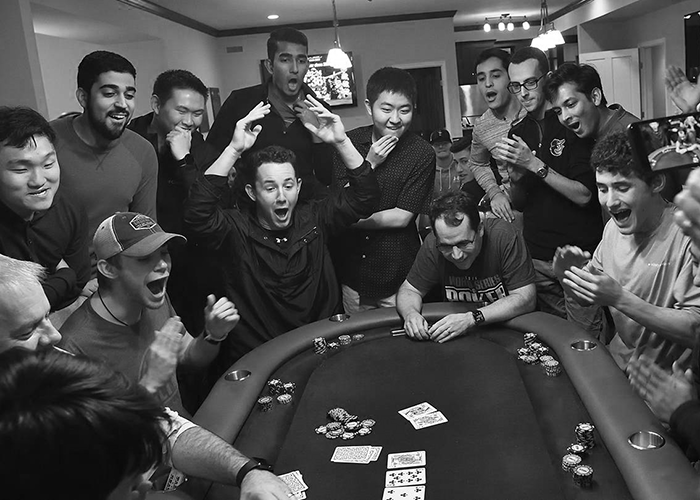


The good hands in poker are widely agreed upon to be pocket Tens, Jacks, Queens, Kings, Aces, Ace-Queen, Ace-King, and Jack-Ten suited.

The Scale of Disgust is an increasing scale by which you must raise to a larger and larger amount preflop the more you despise a specific starting hand.

About 70% of the time that we flat call Ace-King preflop we’re going to miss the flop completely. This means that we will lose with Ace-King 70% of the time.

Since pocket Kings is such a strong preflop holding we simply have to call every bet our opponent makes post flop even once an Ace comes out.

Your favorite hand might be a hand that you think you’ve won often with, like Queen-Nine. Or your favorite hand could be that hand you won a really big pot with that one time and now you play it all the way to the river every time because this hand owes it to you, like Five-Six suited.

When you check dark you can literally have any hand after the flop comes out. You could have top-top. You could have bottom set. You could have Kings (if there is an Ace on the flop). You could have missed completely with Ace-King.

All amateurs know that only bad players bluff. You do not want to look like a bad player; just an amateur player.

You should attempt to bet enough that your opponents fold all possible draws on the flop. In order to achieve this you should bet at least the size of the pot, and sometimes more.

Playing out of position is the hardest thing in poker outside of making a pair with Ace-King.

Math has no part in the game of poker. Math is for Chess. Poker is a feel game.

If you haven’t won any hands for 2-3 orbits its time to request a deck change. Especially if this deck is favoring one player at the table.

Establish your actual range by adjusting your bet sizes to the strength of your hand. Don’t get stuck guessing at what they’re guessing you have.

These bet sizes make it appear as if you did some sort of mathematical calculation before you came up with your bet amount. When you’re betting a specific odd number your opponents will know that you have the best hand and won’t try to bluff you.

Make sure at showdown, when you win a hand, that you explain how you processed all of the information they gave off to make the best decision.

In order to "tilt" you must first start with being results oriented. You will learn how to be results oriented in the chapter.

Once you’re in the money you need to start paying attention to who is scared and who is playing with reckless abandon. Once you have eliminated all of the recklessly aggressive players it’s time to discuss a chop.

Don’t overlook the value of sitting in the same seat week by week. That seat knows you and how you like to play.

If you are playing a cash game and you get up 200 Big Blinds it’s time to leave. Everyone knows that you can’t be this lucky forever.

Your bankroll is the amount of money you have set aside for poker. Often this comes from the ATM.

When you have pocket Kings and the dealer puts an Ace on the flop and you have to bet half your stack just to get everyone to fold then the dealer knows they’re not getting tipped.

Don’t expect to win right away. You will probably still need to chop a few tournaments before you adjust to the new players.